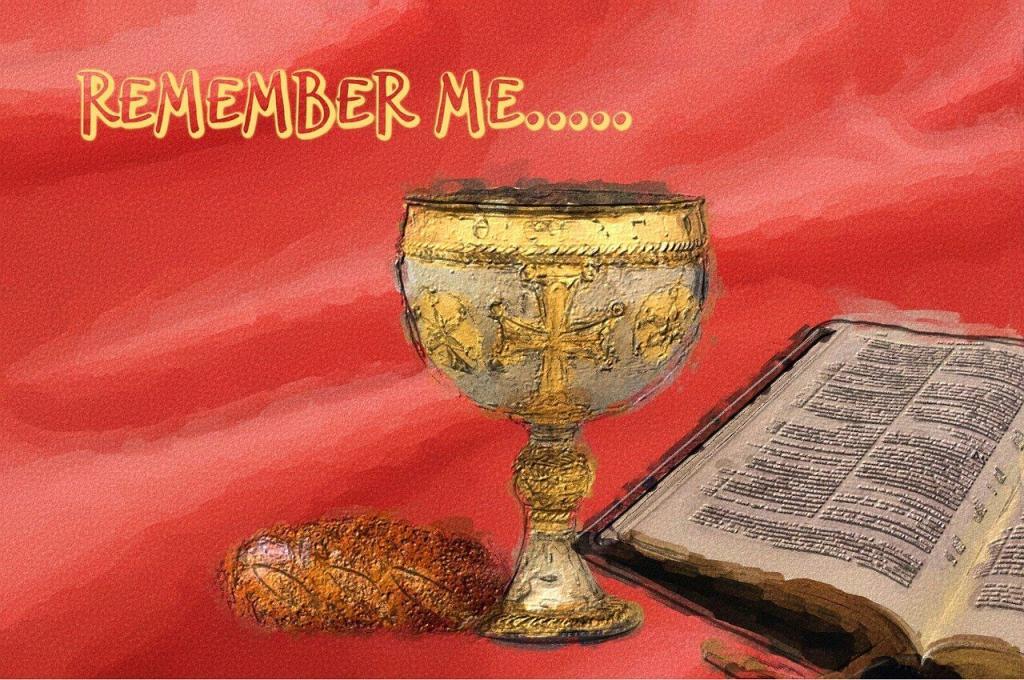
How Not to Take Holy Communion
Part 3 – The Motive & Meal Is Important
Ever go to a garage sale and find out that the garage is not for sale?!
One time, when my wife and I went to Arby’s Roast Beef in Pittsburgh, we had the crazy idea of actually ordering roast beef there. The restaurant was not far from our home, so we would frequent it, yet on this particular occasion when we arrived and ordered a “roast beef sandwich,” the manager was very apologetic and said, “I’m sorry. We are out of roast beef.” Obviously, it was embarrassing for a restaurant whose original name touted “Roast Beef” as its main fare.
St. Paul, sounding a bit like the manager of that Arby’s Roast Beef Restaurant, told the Corinthian congregation, “When you come together, it is not the Lord’s Supper that you eat.” (I Corinthians 11:20)
We can read this two ways. First, the Corinth Christians were not actually receiving the Lord’s Supper when they came together. Or, second, their motive was not really to receive the Lord’s Supper when they gathered.
Either way, the Corinthian congregation was condemned for their practice and motive as they communed. Because of St. Paul’s earlier and later words in I Corinthians 11, we learn that their motive for coming together was corrupted as was their understanding of what they were or were not receiving.
The Lutheran Confessions declare that “the true Church of God exists where the Gospel is preached in its purity and the sacraments are administered according to Christ’s institution” (Augsburg Confession VII). The Corinthian congregation was tiptoeing dangerously close to the edge of not administering the sacrament as it was instituted. The word was out that their “love feast” was not really “the Lord’s Supper,” (His– in every way). Instead, it had been reduced to an opportunity for gluttony. We remember that approximately two thirds of the citizens of Corinth were slaves. They, and many other Corinthians cared more about a free meal than about the opportunity for forgiveness of sins and fellowship with Christ.
The book of Proverbs says that “the Lord weighs the motives of men’s hearts” (Proverbs 16:2b NASB). Literally, the text says that the Lord is weighing “spirits.” When Scripture tells us to “keep in step with the Holy Spirit,” (Galatians 5:25) it is God’s way of telling us that we are supposed to want what God wants. The motive for taking communion is belief in God’s absolute assurance of the forgiveness of sins, with that motive existing in the heart of people who know they are poor miserable sinners, hungry for the righteousness of Christ.
I have spoken with some Christians who have been to churches where they overtly assert “this is not the body and blood of Christ but is just a symbol.” Certainly, that is a flagrant distortion of the words of Christ and the words of St. Paul (I Corinthians 10:16). A faithful Christian should not commune at that table; what is offered there is not The Lord’s Supper. Holy Communion is “Holy Communion” — with Christ!
Prayer: Lord Jesus Christ, the cup of blessing which we bless is Your blood, received sacramentally under the elements of wine. The bread which we break is Your body, received sacramentally under the element of bread. We praise You for Your clear words! Bless Your Church everywhere, that it would teach the mystery of communion as You instituted it. Bless every communicant, that we come to the table broken and contrite of heart, firmly believing what You have offered – Your body and blood in, with, and under the bread and wine – given and shed for our sin. Amen.
